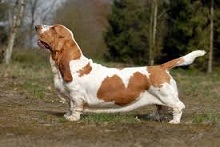
To get a feel of the importance of such modern assays, think about the large number of different breeds of domesticated dogs, not to mention mixes between breeds. Actually there is no other mammal in the whole wide world that can appear under so many disguises. From Chinese Crested dogs that are favorites for winners of “The Ugliest Dog” contests, to clever Border Collies or the lovely Labrador Retrievers, dogs come in different shapes and sizes.
Who would have known that the common looking wolves will end up with great grand children, looking so unlike their fathers? In fact, genetics asks the same question and goes overboard to explain why there is so much variety and how did it come about to benefit mankind.
Nature and nurture seem to function for our furry friends just like they do for us. In other words, the comfortable life domesticated dogs have led close to humans, has impacted their genome. Although their ancestors started as help for cavemen, dogs today are treated like family. Did you know that there is a Disney resort for pets next to the one for humans? And did you know that there is a special airline that caters to pets only?
There is as much variation in our dogs genes just as the differences between an animal shelter and that Disney dog resort. So, dogs differ considerably between breeds, as they differ from one individual to another. But once again, this proves to be helpful for us humans. Studies of dog genetics can offer insights not only into their history and diseases, but can also provide solutions for studies on human genetics.
Breeding has given this opportunity for genetic variation that resulted in the different aspect of dogs today. Pure breeding, however, has been responsible for the harmful mutations, leading to genetic diseases so many dogs suffer from. If natural selection would have led its course, dogs would still look like wolves and have their robust characteristics.
Domesticated dogs suffer from diabetes, hip dysplasia, arthritis and cancers as a side effect of sedentary lifestyles. These are caused by upbringing, diets based on processed foods, environmental pollutants, which affect our pets just as they affect us. Consequently, the natural protection systems of their genes are weakened and they get higher frequencies for mutations, some of which are harmful. Further breeding spreads these mutations in next generation dogs.
If our dogs look anything like wolves today, their lifestyle tends to look more and more like that of their owners. Costly veterinary care resembles cutting-edge practices in human medicine. We have made our pets sick and now we have to pay higher and higher bills to keep them alive.
In any case, mans best friend is treated more and more like family.




